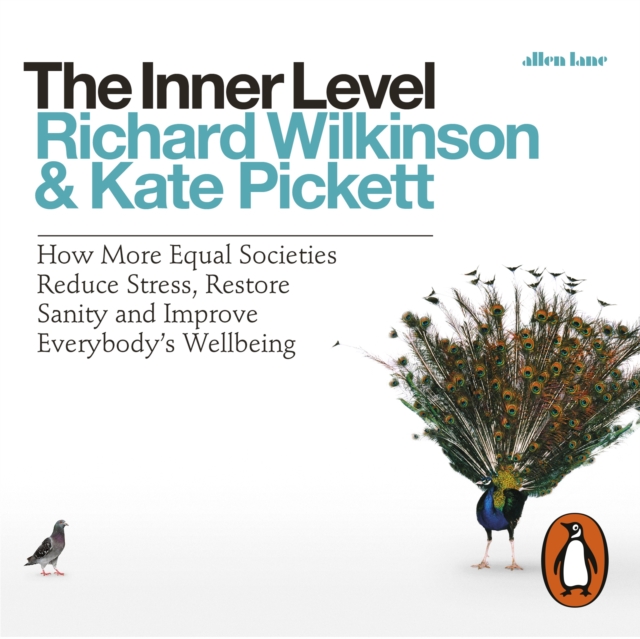
The Inner Level : How More Equal Societies Reduce Stress, Restore Sanity and Improve Everyone's Well-being eAudiobook MP3
by Richard Wilkinson, Kate Pickett
Narrated by Finlay Robertson
eAudiobook MP3
Description
Penguin presents the audiobook edition of The Inner Level by Richard Wilkinson and Kate Pickett, read by Finlay Robertson. Why is the incidence of mental illness in the UK twice that in Germany?
Why are Americans three times more likely than the Dutch to develop gambling problems?
Why is child well-being so much worse in New Zealand than Japan?
As this groundbreaking study demonstrates, the answer to all these hinges on inequality. In The Spirit Level Richard Wilkinson and Kate Pickett put inequality at the centre of public debateby showing conclusively that less-equal societies fare worse than more equal ones across everythingfrom education to life expectancy.
The Inner Level now explains how inequality affects us individually,how it alters how we think, feel and behave.
It sets out the overwhelming evidence that materialinequalities have powerful psychological effects: when the gap between rich and poor increases, so does the tendency to defi ne and value ourselves and others in terms of superiority and inferiority.
A deep well of data and analysis is drawn upon to empirically show, for example, that low social status is associated with elevated levels of stress, and how rates of anxiety and depression are intimately related to the inequality which makes that status paramount. Wilkinson and Pickett describe how these responses to hierarchies evolved, and why the impacts ofinequality on us are so severe.
In doing so, they challenge the conception that humans are innatelycompetitive and self-interested.
They undermine, too, the idea that inequality is the product of 'natural' differences in individual ability.
This book sheds new light on many of the most urgent problems facing societies today, but it is not just an index of our ills.
It demonstrates that societies based on fundamental equalities, sharing and reciprocity generate much higher levels of well-being, and lays out the path towards them.
Information
-
eAudio Download - Immediately Available
- Format:eAudiobook MP3
- Run-time:10 hours 29 mins
- File size:0MB
- Publisher:Penguin Books Ltd
- Publication Date:30/08/2018
- Category:
- ISBN:9780241379479
Other Formats
- Paperback / softback from £10.25
- EPUB from £7.99
Information
-
eAudio Download - Immediately Available
- Format:eAudiobook MP3
- Run-time:10 hours 29 mins
- File size:0MB
- Publisher:Penguin Books Ltd
- Publication Date:30/08/2018
- Category:
- ISBN:9780241379479






